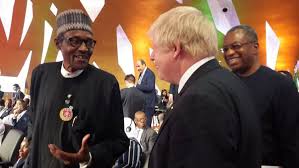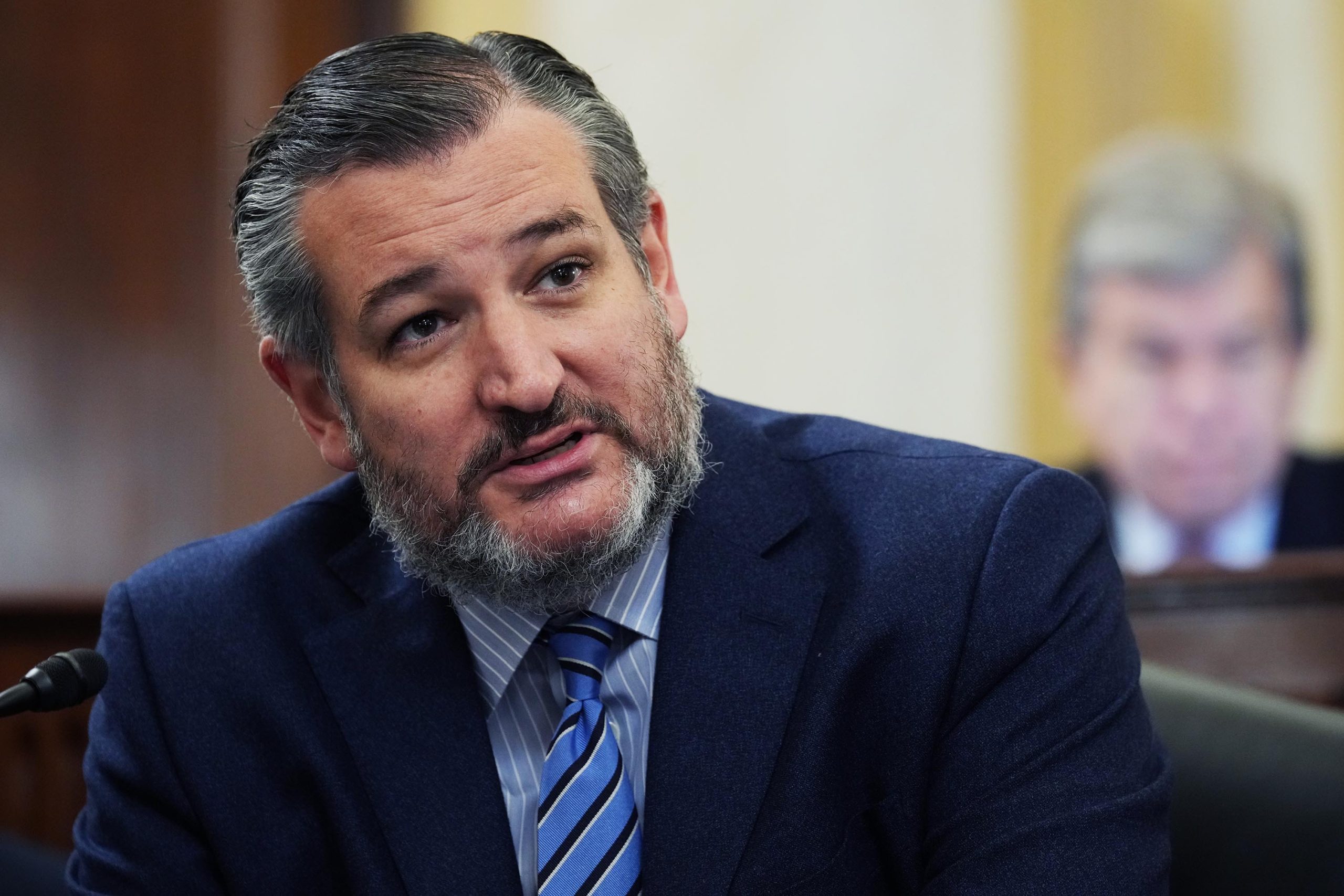News
Is Britain Still Qualified to Call Nigeria “Fantastically Corrupt”?

By Joel Popoola
With a Prime Minister under police investigation and £4.3bn of COVID-19 fraud, can Britain continue to call Nigeria “fantastically corrupt”?
The next time a member of the British establishment describes Nigeria as “a failed state” perhaps we should remind them of the time a government minister resigned after admitting to overseeing a £4 billion fraud – and it wasn’t even the biggest political scandal that week!
In London, Prime Minister Boris Johnson – recently censured for accepting in the region of 62m Naira to refurbish his flat from a wealthy backer – stands accused of hosting boozy parties during COVID-19 lockdown.
One such incident – for which his secretary invited attendees to bring alcohol to a gathering in the Prime Minister’s house – saw Johnson insist that he believed himself to have been at “a work event”.
Johnson now stands accused of enjoying a birthday party during a time when up and down the UK – and around the world – parents were telling their children they were not allowed one. This was even a time when the Queen sat alone at her husband’s funeral to obey social distancing requirements.
Had no-one told Johnson it was his birthday? Is him being presented with a cake and serenaded a regular workday occurrence?
The British Prime Minister is now subject to a police investigation.
I’ll repeat that.
The British Prime Minister is now subject to a police investigation.
While all of this was going on, Finance Minister Lord Theodore Agnew stood up in Parliament to announce that no less that £4.3bn of public money set aside for COVID-19 assistance for businesses had been lost to fraud.
The admission came after the New York Times described the UK’s pandemic spending as being characterised by “waste, negligence and cronyism”, leading to a situation where “politically connected businesses reaped billions”.
The American newspaper has estimated that “about half” of the UK’s pandemic spending went to “companies with political connections, no prior experience or histories of controversy.”
These included contracts for one company currently on the receiving end of two global corruption probes, and a $470m protective equipment contract to a pest control firm who supplied 600,000 unusable face masks.
At least Boris Johnson has not publically accused Nigeria of being “fantastically corrupt” as one of his predecessors did!
Lord Agnew – the government minister with the responsibility for fighting financial fraud! – admitted that “schoolboy errors” saw 1000 “ghost” businesses given public money.
UK government figures suggest that overall £5.8 billion was stolen from pandemic relief schemes by people claiming cash they weren’t entitled to.
Again, imagine the response in Britain if a Nigerian politician admitted this!
But here perhaps Nigerian leaders could learn something from their British counterparts.
Lord Agnew was not personally to blame for this fraud – presumably he did not order his officials to allow it – but he accepted responsibility for it and immediately tendered his resignation.
This prompted praise from opposition parliamentarians, with one calling him “a minister who felt his integrity could no longer ensure he remained a member of the Government.
“Can I just take this opportunity to say on behalf of these benches how much we appreciate the honour and integrity that has just been displayed by the minister”, said another.
This shouldn’t need saying, but people appreciate openness and transparency from their leaders.
At the digital democracy campaign I lead, we aim to give them the platforms they need to deliver it.
We have created a free mobile app called Rate Your Leader, which was designed to reconnect electors and the elected, opening direct channels of communication between people and their elected officials – giving local people the kind of access previously only enjoyed by funders.
Rate Your Leader encourages politicians to speak directly to the people they serve and explain the decisions they have made and the reasons for them. If the voters don’t like the answer they get, they can rate their politicians badly.
This leads to greater levels of trust in a political class that the voters can see are working for them, and accountable to them.
Digital technologies like Rate Your Leader put transparency and accountability and your fingertips. Direct communication from politician to person, peer to peer.
We’d be happy to offer Boris Johnson a free account. But we must warn him, if he continues to break the rules he made – in the rooms he made them – he is unlikely to be rated very highly.
Joel Popoola is a Nigerian tech entrepreneur, digital democracy campaigner and creator of the Rate Your Leader app. He can be reached via @JOPopoola
News
Alleged Defamation: Court Turns Down DSS Request to Arrest Sowore

The Federal High Court in Abuja, on Wednesday, declined a request by the Department of State Services (DSS) to issue a bench warrant for the arrest of activist and publisher of Sahara Reporters, Omoyele Sowore, in his ongoing defamation trial.
Sowore is being prosecuted over comments made on social media in which he allegedly described President Bola Tinubu as a “criminal.”
The Federal government argues the statement contravenes provisions of the Cybercrimes (Prohibition, Prevention, etc.) Amendment Act, 2024, as well as sections of the Criminal Code, and is capable of inciting public disorder.
Director of Public Prosecutions, M. B. Abubakar, told the court that Sowore’s remarks amounted to cyber harassment and criminal defamation under Section 24(1)(b) of the Cybercrimes Act and Sections 59 and 375 of the Criminal Code.
He insisted the activist must be held accountable for using digital platforms to malign the President.
During proceedings, counsel to the DSS, Akinlolu Kehinde, SAN, urged the court to issue a bench warrant, arguing that Sowore had been duly served with the charge and hearing notice but failed to appear.
He described the absence as a clear disregard for judicial authority.
According to Kehinde, allowing such conduct to go unchallenged could undermine the court’s authority — particularly in politically sensitive matters involving state institutions.
He also dismissed a letter submitted by activist Deji Adeyanju seeking an adjournment on Sowore’s behalf, describing it as an attempt to delay the case.
However, presiding Judge, Justice Mohammed Umar, declined the request. He ruled that it would be premature to issue a bench warrant because the second defendant in the matter, X Corporation (formerly Twitter), had not been properly served with the charge sheet.
The judge held that due process in serving all defendants must be completed before any coercive orders can be considered.
Counsel to X Corporation, Christabel Ndiokwelo, confirmed that although her client received the hearing notice, the formal charges had not yet been served.
Counsel to META (Facebook), Tayo Oyetibo (SAN), was also in court.
He aligned with the government’s position, describing Sowore’s absence as deliberate. He also dismissed Sowore’s claims that social media companies were collaborating with the DSS to censor him as “baseless and diversionary.”
Justice Umar adjourned the case to December 2, 2025, for proper arraignment, and directed that fresh hearing notices and charge documents be served on all parties to prevent further delays.
News
CPC: Time to Hold Nigerian Officials Accountable, Says Senator Ted Cruz

Following US President Donald Trump’s designation of Nigeria as a Country of Particular Concern (CPC), US Senator Ted Cruz has declared that the next step is to hold Nigerian officials accountable.
Cruz is championing the Nigeria Religious Freedom Accountability Act of 2025, a bill designed to protect Christians and other religious minorities from widespread persecution in Nigeria.
After the CPC designation, Trump also warned of possible military action in Nigeria if its leaders failed to protect Christians in the country.
Reacting in a post on his official X handle on Tuesday, Senator Cruz said he has been pushing legislation to designate Nigeria as a CPC and to impose sanctions on Nigerian officials responsible for religious persecution.
He thanked President Trump for the designation and for “fighting to stop the murder of Christians in Nigeria.”
According to Cruz, the next step is to hold Nigerian officials accountable, promising to publicly identify them in the coming weeks.
His post reads: “I’ve been pushing legislation to designate Nigeria a CPC and to impose sanctions on the Nigerian officials responsible.
“Thank you to President Trump for his leadership in imposing the designation, and more broadly, for fighting to stop the murder of Christians in Nigeria.
“Now we should take the next step and hold Nigerian officials accountable. I intend to be very explicit about who they are in the coming days and weeks.”
Last weekend, Trump declared Nigeria a “Country of Particular Concern” over alleged killings of Christians.
In a statement posted on his social media platform Truth Social on Friday, Trump said Christianity faces an existential threat in Nigeria, describing the alleged killing as a “mass slaughter.”
“Christianity is facing an existential threat in Nigeria. Thousands of Christians are being killed. Radical Islamists are responsible for this mass slaughter,” he wrote.
The US president added that the United States “cannot stand by while such atrocities are happening” and directed Congressman Riley Moore and House Appropriations Chairman Tom Cole to investigate the matter.
The Nigerian government has repeatedly rejected claims of Christian genocide in the country.
In September, the Federal government described claims of a systematic genocide against Christians as “false, baseless, despicable, and divisive.”
The Minister of Information and National Orientation, Mohammed Idris, said portraying Nigeria’s insecurity as a religious conflict was a gross misrepresentation of reality.
“Portraying Nigeria’s security challenges as a targeted campaign against a single religious group is inaccurate and harmful.
“The federal government strongly condemns and categorically refutes recent allegations by certain international platforms and online influencers suggesting that terrorists operating in Nigeria are engaged in a systematic genocide against Christians,” he said.
Idris stressed that extremists have attacked citizens of all faiths, noting that Muslims, Christians, and even non-religious Nigerians have suffered alike.
Between May 2023 and February 2025, he said, security forces killed over 13,500 terrorists and rescued nearly 10,000 hostages.
He added that the recent capture of top Ansaru leaders and over 700 convictions of Boko Haram suspects reflected Nigeria’s progress in the fight against terrorism.
“These criminals target all who reject their murderous ideology, regardless of faith,” the minister stated.
News
Court Grants PDP Permission to Hold Convention

The Oyo State High Court has granted the Peoples Democratic Party approval to proceed with its elective national convention scheduled for November 15–16, 2025, in Ibadan, the state capital.
The court also directed the Independent National Electoral Commission to attend and monitor the exercise, Channels TV reports.
Delivering the ruling, Justice A. L. Akintola issued an interim order permitting the party to continue its convention plans without obstruction.
The decision came after an ex-parte motion filed by Folahan Adelabi against the PDP, its Acting National Chairman, Umar Damagum; Governor Umaru Fintiri, who heads the National Convention Organising Committee; and the INEC.
In his ruling on Monday, Justice Akintola held that the claimant presented a compelling case that warranted immediate judicial intervention.
“The motion ex-parte has merit and succeeds as prayed,” the judge ruled, granting temporary reliefs that safeguard the party’s schedule and direct all parties to allow the convention to proceed as planned.
The judge subsequently adjourned the hearing of the substantive motion for an interlocutory injunction till November 10, 2025.
The interim order, issued on November 3, 2025, was sealed by the Oyo State High Court and endorsed by its Principal Registrar, S. O. Hammed.






